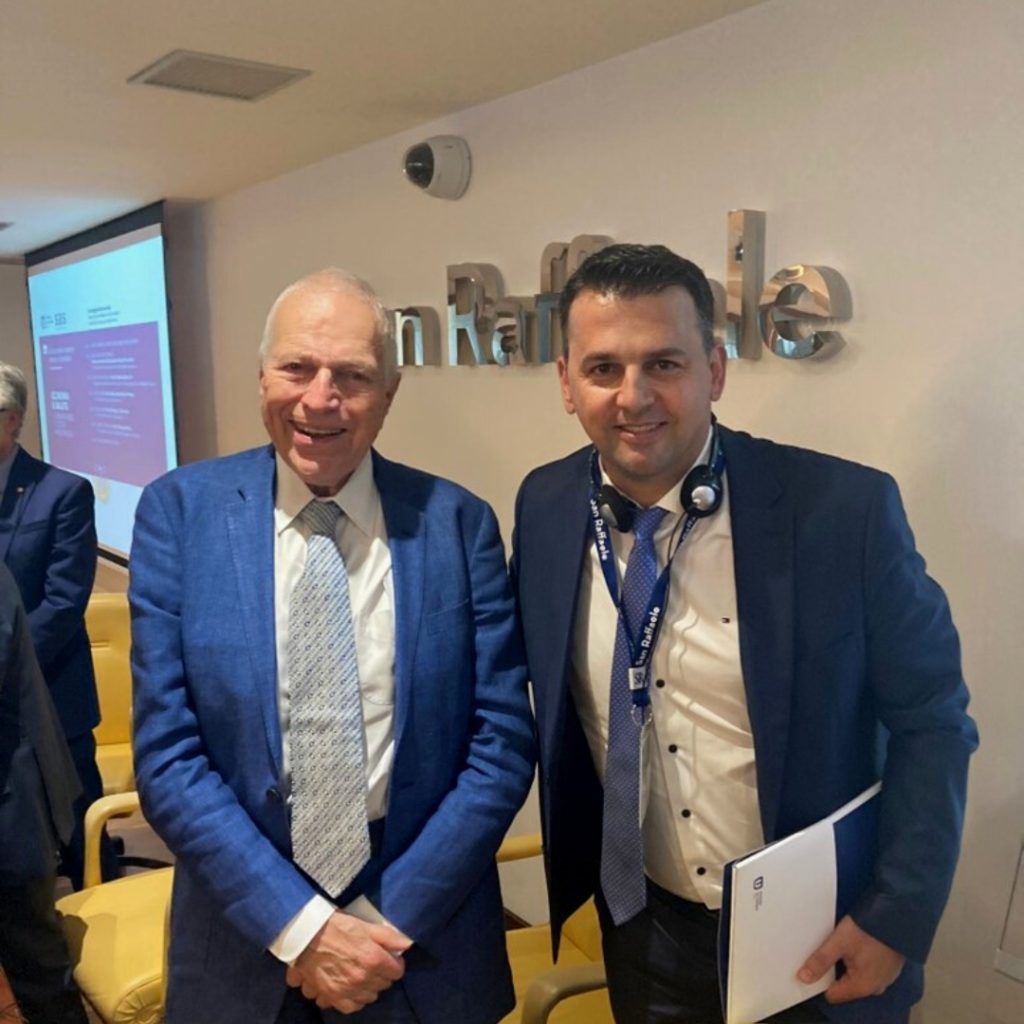SSBM Geneva professor Dario Silić met professor Edmund Strother Phelps during his visit to the SBS school in Rome, Italy. A new cooperation agreement between SBS and SSBM Geneva has been officially announced in front of high guests such as Mrs. Maria Elisabetta Alberti Casellati, President of Senate of Republic of Italy.
It was an honour for Prof Dario Silić to represent SSBM Geneva and to have the opportunity to share his ideas with prof Edmund Phelps, the recipient of the 2006 Nobel Memorial Prize in Economic Sciences. Prof Phelps, an American economist, is the director of the Center on Capitalism and Society, Colombia University and author of many published and awarded papers.

His demonstration of the golden rule savings rate, a concept related to work by John von Neumann, started a wave of research on how much a nation should spend on present consumption rather than save and invest for future generations. His most seminal work inserted a micro-foundation. One featuring imperfect information, incomplete knowledge and expectations about wages and prices, to support a macroeconomic theory of employment determination and price-wage dynamics. This led to his development of the natural rate of unemployment: it’s existence and the mechanism governing its size.
Prof. Dario Silić and other SSBM Geneva professors very much use the research results of prof Phelps in the Financial Management and Corporate Finance classes, especially with respect to the explanation of unemployment rates in relation with investments and social wealth.
Phelps created a new non-monetary theory of employment in which business asset values drive the natural rate. The theory, first fully set out in his book Structural Slumps (1994), explains Europe’s slump without disinflation in the 1980s: the elevation of the world real rate of interest, declining opportunities for continuing technological catching up and the mushrooming social wealth granted by Europe’s emerging welfare state play the main causal roles. His book, as well as subsequent papers, argued that the fluctuation of unemployment rates in the United States, the United Kingdom and France stemmed from the accumulation of wealth with minimal investment.
In the mid-1990s, his research turned to what he called economic inclusion. He published in 1997 a book for the general public, Rewarding Work about the causes and cures of the joblessness and low wages among disadvantaged workers.
SSBM Geneva prof Dario Silić has been inspired by a Path to the Good Life, paper presented by prof. Phelps and will certainly be sharing it with SSBM students on Bachelor, MBA and DBA levels.

